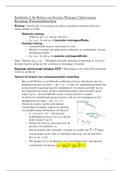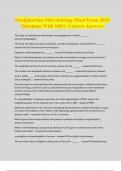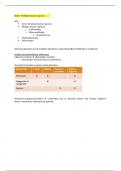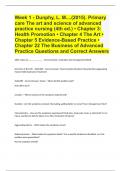Essay
Genetics Argumentative Essay - 95% Example: The ethical dilemma of gene therapy and enhancement
- Course
- Genetics 214 (GEN214)
- Institution
- Stellenbosch University (SUN)
Many genetics courses will include an argumentative/bioethical essay. This is the essay I wrote that achieved 95%, which may serve as a useful example and a springboard for your own arguments. Just don't plagiarise as it would show up right away on the Turnitin system.
[Show more]












